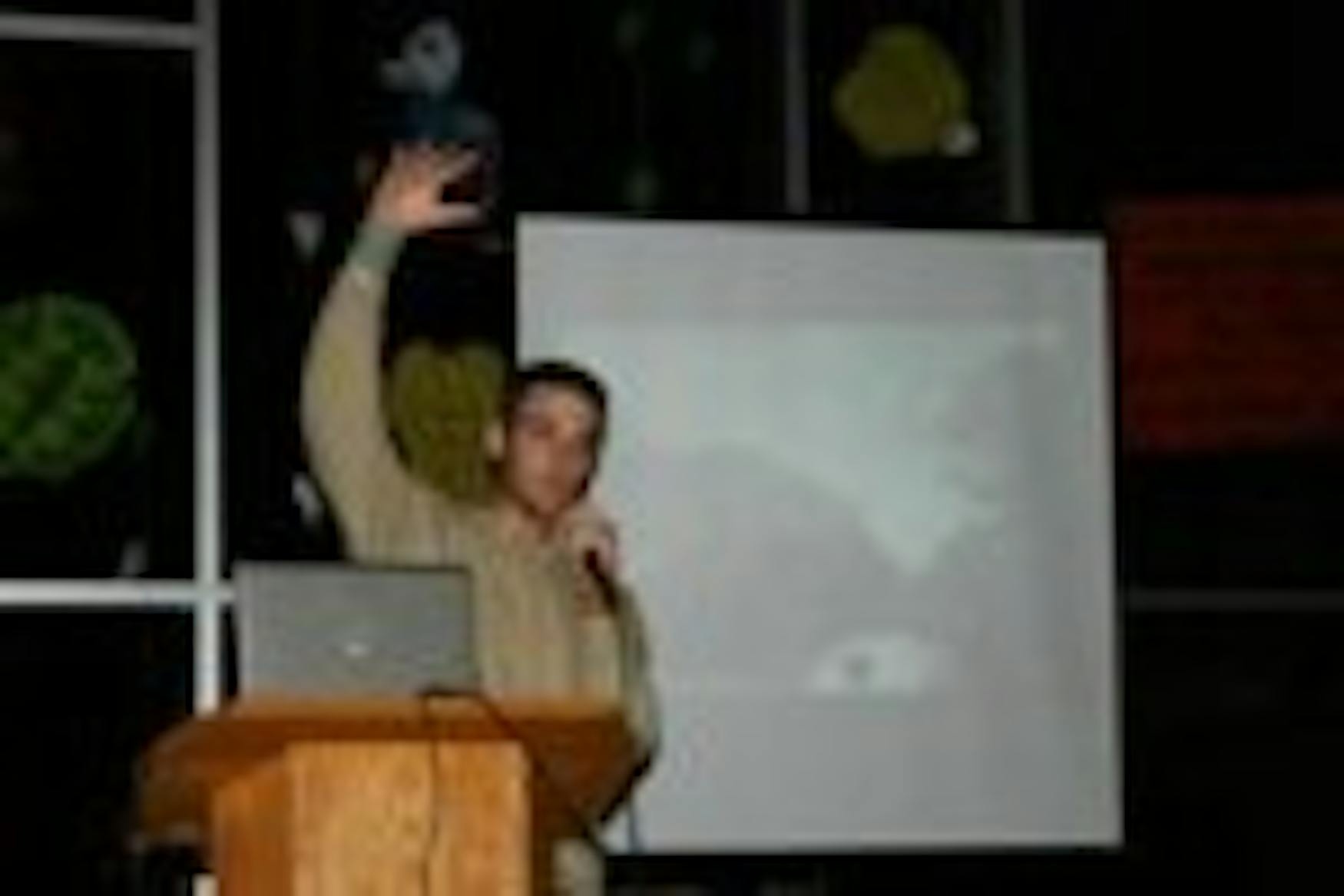Colin Bennett explains global warming
Green party candidate and environmental activist Colin Bennett showed what he learned about global climate change from Nobel Peace Prize-winner Al Gore by presenting a slideshow about An Inconvenient Truth, an Academy Award-winning documentary film on Gore's environmental advocacy efforts, in the Shapiro Campus Center Atrium last Thursday. Bennett is the clean energy organizer at Clean Water Action, the founder and president of the Great Land Conservation Trust, and the assistant district manager for the Climate Project. He is planning on running on the Green Party ticket for the Connecticut State Senate in 2008.
"What you saw tonight was a shortened program," Bennett said in an interview with the Justice. "For people who might not be aware, it's a great introduction."
An Inconvenient Truth, released in May 2006, became the fourth-highest grossing film to date in the United States and won two Academy Awards, for best documentary and best original song. Gore and the U.N.'s Intergovernmental Panel on Climate Change won the 2007 Nobel Peace Prize last month.
About 20 students attended the presentation, including nine members of Students for Environmental Action, the campus club that focuses on bringing awareness to global environmental issues and individual solutions.
Bennett was trained by Gore at an environmental conference in Nashville last December in what he described as a weekend spent going through the slideshow with the opportunity to ask Gore questions.
"Usually the earth takes in the sun energy and heat energy that is required, and then the rest is reflected by the atmosphere," Bennett said. "All of our pollution is thickening the atmosphere so that it now absorbs more energy."
All of this energy is contributing to a "climate crisis," Bennett said, noting that the 10 hottest years have all been in the past 14. Bennett pointed to the melting of glaciers as a direct example of this climate change.
"The age of a glacier is known by its layers, like the rings in a tree trunk," he said. "What scientists are doing is taking slices of glaciers and looking for patterns."
According to Bennett, scientists have successfully tracked global carbon dioxide levels as far back as 650,000 years. Those levels remained fairly constant until 1850 and then began to rise quickly, he said.
Bennett also explained that rising temperatures could also affect the transfer of oil. "We depend on oil transfer via truck, but because of the melting caused by rising temperatures the months during which we can successfully transfer oil have decreased."
This climate change is also negatively affecting wildlife, Bennett said. "For the first time ever, polar bears are actually drowning because it is becoming increasingly more difficult for them to find icecaps," he said. "Birds are suffering too, because their migratory and egg-laying patters are all thrown off." Many species are even becoming extinct because of the climate change, he added.
Deforestation also increases the risk of climate changes, Bennett said. Trees absorb carbon dioxide and emit oxygen, and cutting them down slowly expedites the process of "global warming," he said.
"Rainforests are slowly turning into deserts," he said.
Bennett said in an interview afterward that he intended for his presentation to be a brief overview "because most people have at least a general knowledge of the situation."
"My favorite part is the discussion time after the show, because that's when I really see how involved people want to get." he said.
Danielle Hollenbeck-Pringle '10, an event organizer, considered the event a success because "there were people there who hadn't been active in the SEA, and that shows that people are concerned."
"I'm definitely going to think about [the environment] a lot more," Jimmy Fruchterman '09 said after the presentation. "I learned about a lot of things I hadn't necessarily focused on, like the extent of the melting of the icecaps.



Please note All comments are eligible for publication in The Justice.